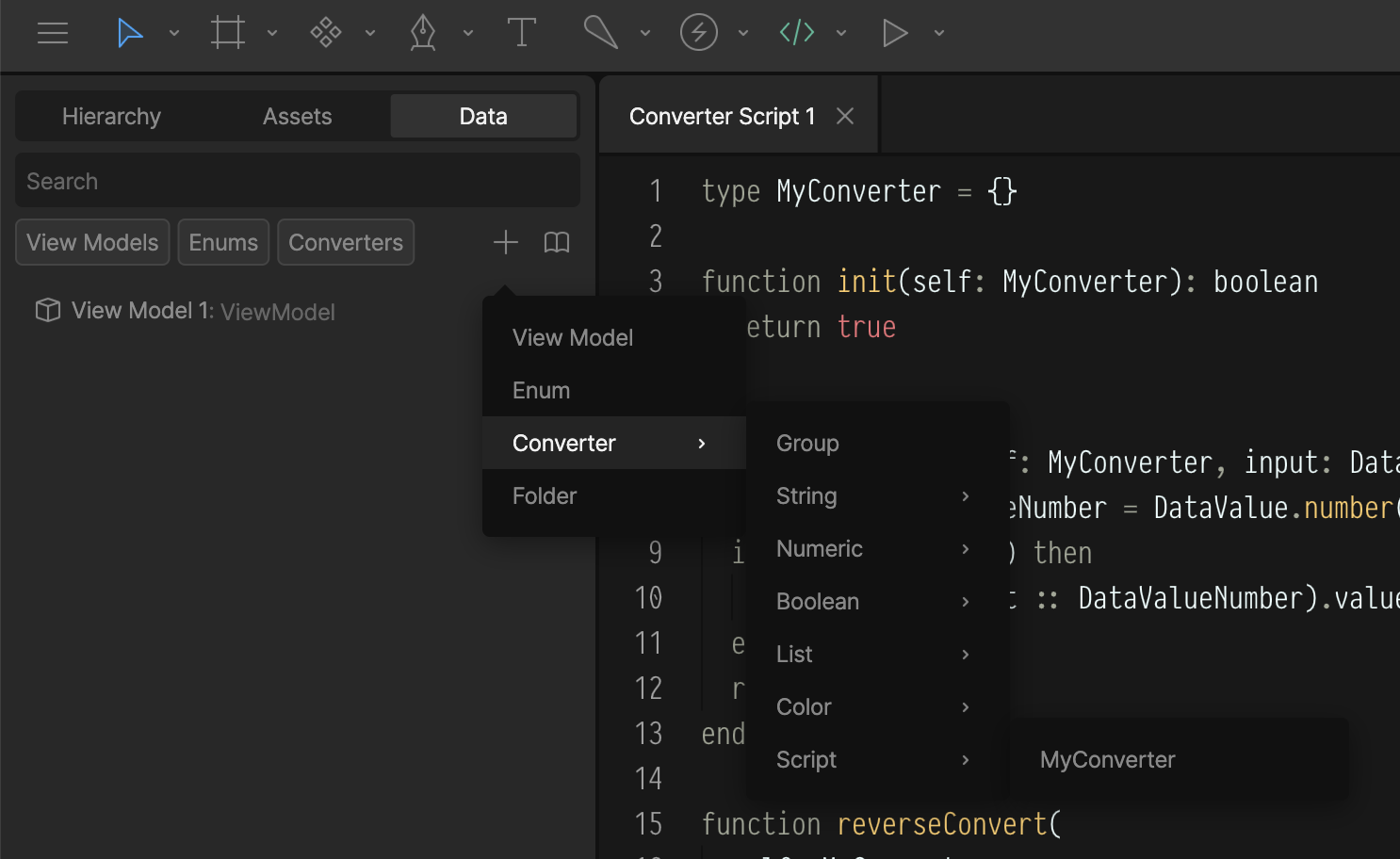Examples
Creating a Converter
Create a new script and select Converter as the type.Anatomy of a Converter Script
Creating a Converter using your Script
Create a new converter using your new converter script:- In the Data panel, click the
+button. - Choose Converters → Script → MyConverter.
